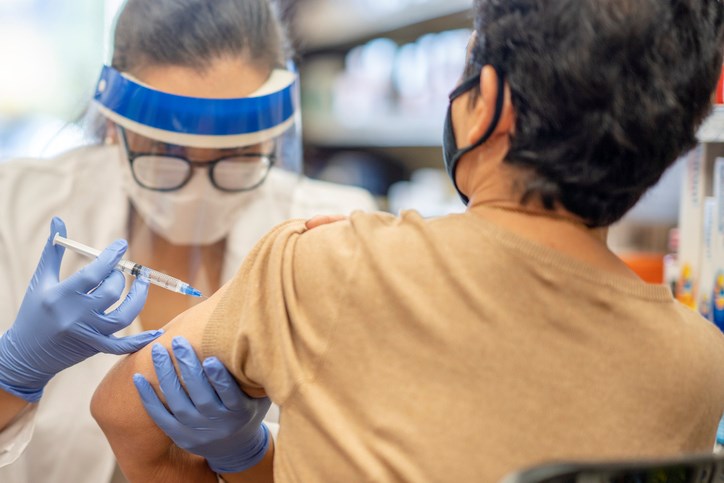Most British Columbians will now only have to wait eight weeks between their first and second COVID-19 vaccine doses.
B.C. provincial health officer Dr. Bonnie Henry revealed Thursday that those who received vaccinations through the age-based program will see that gap closed significantly from the previous 16-week wait.
She said the supply of vaccines from that program — Pfizer Inc. and Moderna Inc. — are now at the point where the interval can be cut in half.
But there are a few “complicating” factors that Henry acknowledged the province will have to deal with.
The first is that the supply of the Moderna vaccine has been much less dependable than that of the Pfizer vaccine, although Henry said she expects those issues to “level off” by the end of June.
“We are prioritizing supplies of Moderna that we have right now to be able to make sure that when we [administer doses within] communities who receive Moderna for the first dose, they can receive it for their second,” Henry said, referring to how Moderna has been used more frequently in rural communities than Pfizer owing to the fact it is easier to transport.
The second factor is that the AstraZeneca plc vaccine, which was used in work-based programs and administered at pharmacies and pop-up clinics, has also faced a spotty track record in terms of supply.
“I'm asking you to hold tight for a few more days,” Henry said in reference to those who have received the AstraZeneca vaccine.
“What we have seen is that this vaccine has a better response with a slightly longer interval between doses.”
She said more information will be coming by the end of next week about the prospect of Canadians who received a first dose of the AstraZeneca vaccine with a second dose of one of the messenger RNA (mRNA) vaccines (Pfizer and Moderna).
Henry said it would be up to B.C. AstraZeneca recipients to make an “informed decision” about receiving AstraZeneca for a second dose or accepting one of the mRNA vaccines for a second dose.
“While it is always preferable to have the same product for the first and second doses, in some cases, that isn't possible. There are a number of reasons for this: People can have an adverse reaction to those, or they simply don't know [which vaccine they received first] or that vaccine may not be available,” she said.
“I want to assure people that we will have enough of the AstraZeneca vaccine to provide second doses for everybody who wants that.”
Henry said she expects all British Columbians to be able to get their second dose — regardless of the vaccine — by the end of the summer.
B.C. health officials have repeatedly expanded the interval from the initial recommendation of three to four weeks it was adhering to in December and January.
In February, the interval was extended from five to six weeks before being extended to 16 weeks the following month.
Henry said British Columbians at greatest risk will be prioritized for second doses.
“That means our seniors and elders, Indigenous people, and people we’ve identified as extremely vulnerable,” she said.
“So about 400,000 people over the age of 70 and clinically extremely vulnerable will start receiving their invites today.”
To date, 3,032,811 doses have been administered in B.C., representing 62% of all eligible residents 12 and older. Second doses have so far numbered 156,730.
Meanwhile, Henry also confirmed that long-awaited electronic access to immunization records will be made available to British Columbians in the near future.
British Columbians are offered business-card size paper copies of their immunization information upon receiving their vaccine doses.
“I don’t want to give a timeframe but it’s very soon,” Henry said.
@reporton



